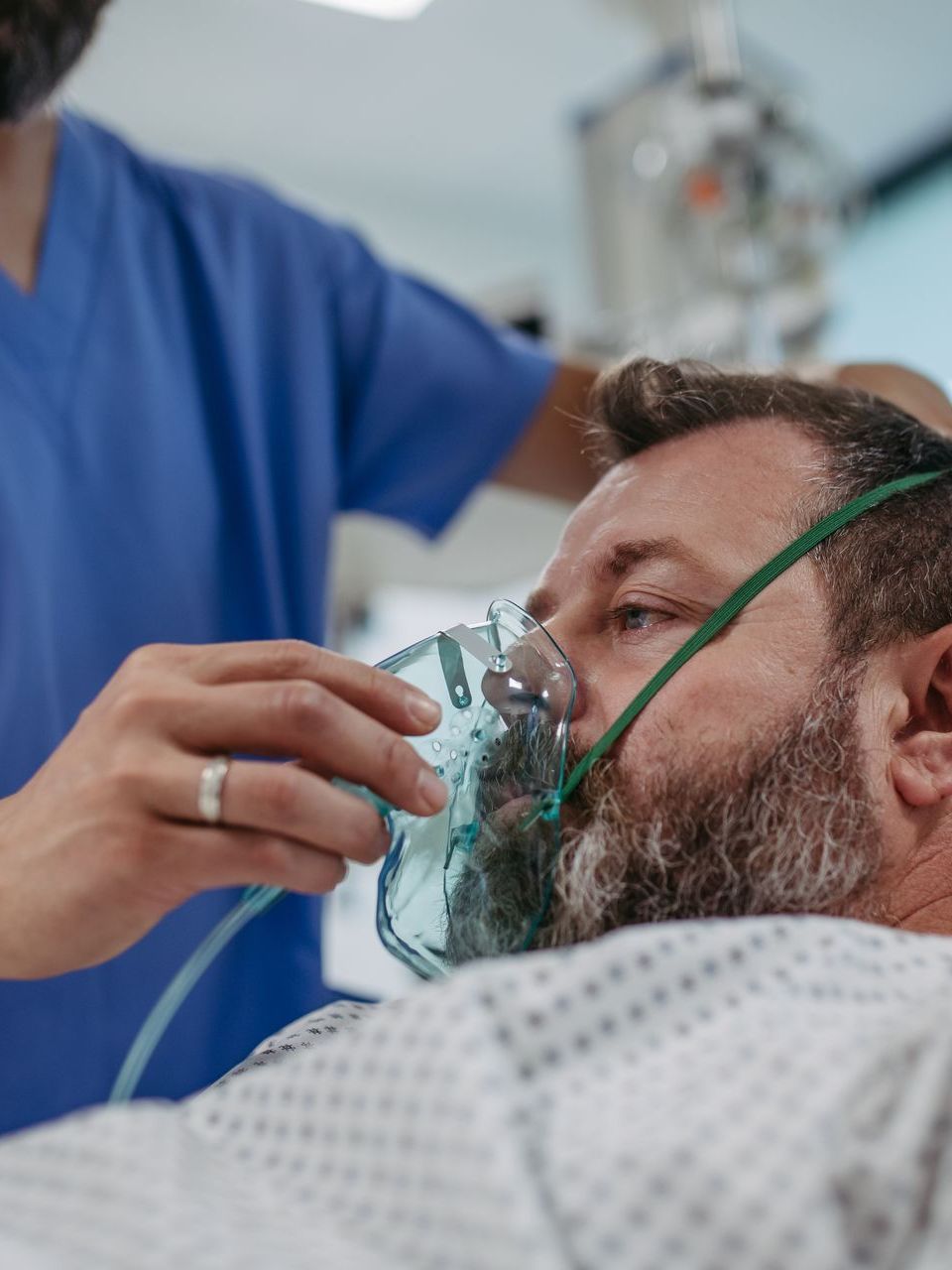Respiratory Infections
Respiratory Infection
Respiratory infections are those that impact your respiratory system, including ailments affecting your nose, sinuses, throat, airways and lungs. The common cold and the flu are the most prevalent and notorious respiratory infections, but there are many other serious respiratory infections that could cause serious symptoms in you or your loved ones without proper precaution.
The Houston healthcare professionals at St. Hope Healthcare are available 24/7 to assist you with an accurate diagnosis and prompt treatment. We are dedicated to ensuring you stay healthy or become healthy again as soon as possible.
Types of Respiratory Infections
Sinusitis
If your runny nose persists for weeks on end, it’s possible you may have sinusitis instead of a common cold. When fluid builds up in your sinuses without release – whether due to a previous cold or seasonal allergies – they can become a breeding ground for germs, exacerbating your risk of contracting sinusitis.
Symptoms of sinusitis include:
- Facial discomfort
- Headache
- Nasal congestion
- Runny nose
- Postnasal drip
- Reduced sense of smell
Most cases of sinusitis get better naturally without intervention. In fact, taking antibiotics when it isn’t necessary could do more harm than good, inflicting side effects like nausea and diarrhea without the healing benefits. If you have seasonal allergies, try to limit your exposure to pollen and other triggers that could lead to a sinus infection by keeping windows closed, using air purifiers and wearing protective gear outdoors.
If you notice symptoms of sinusitis, you should schedule a visit with your healthcare provider to verify whether you should seek active remedies or let your body recover naturally. Physician recommendations usually vary on a case-by-case basis. If your symptoms last longer than 10 days, if there’s facial pain or if you’re experiencing vision changes, you may need medical intervention.
Bronchitis
Bronchitis is when your bronchial tubes become inflamed, most often because of a virus contracted after a previous cold or flu but occasionally due to a bacterial infection. Symptoms include:
- Coughing
- Excess mucus production
- Chest discomfort
- Fatigue
- Shortness of breath
- Mild fever
Bronchitis will typically dissipate after a few weeks without treatment, but there are some cases of chronic bronchitis where symptoms persist for approximately three months and usually require antivirals to treat. Because bronchitis is rarely caused by bacteria, it’s rarely recommended to treat with antibiotics, as they may hurt more than help against viral infections.
If your symptoms persist for more than three weeks or if you’re experiencing aggressive symptoms like severe chest pain or coughing blood, you should talk to your healthcare provider immediately. Alternatively, if you have chronic bronchitis, it’s possible you may have Chronic Obstructive Pulmonary Disease (COPD) – in which case you should talk to your healthcare provider about testing.
Strep Throat
Strep throat is a bacterial infection in the throat and tonsils. Symptoms include:
- Sore throat
- Difficulty swallowing
- Swollen lymph nodes
- Fever
- White patches or occasionally pus on tonsils
Notably, strep throat symptoms do not include a runny nose or a cough – meaning if you have those in addition to a sore throat, it’s likely you have something other than strep throat.
Unlike a majority of respiratory infections, natural remediation isn’t possible. Strep throat requires antibiotics to treat, which you’ll need to see your doctor about. However, if you’re experiencing difficulty breathing or persistent symptoms after starting antibiotics, you may need to talk to your healthcare provider about more aggressive treatment.
Pneumonia
Pneumonia is when the air sacs in one or both of your lungs become infected, filling with pus or fluid that can make it hard to breathe, resulting in other symptoms such as:
- Cough
- Fever
- Chest pain
- Fatigue
- Chills
- Shortness of breath
Either bacteria or a virus can cause pneumonia. Consulting with your healthcare provider is crucial to determine the root cause and, subsequently, the most effective treatment. If your fever is over 102 F, if you have difficulty breathing or if you are in a vulnerable demographic (i.e., older adults, children and infants), you should see your doctor to ensure the pneumonia isn’t life-threatening.
We’ve Been Supporting Houston Residents and Treating Respiratory Infections for Over 20 Years
At St. Hope Healthcare, our physicians are ready and eager to help you with comprehensive and customized care solutions. We will utilize the full force of our medical training, top-rate medical technology, fast-responding lab results and extensive patient resources to help you overcome a respiratory infection or any other illness.
Call (713) 778-1300 to learn more about our services or schedule an appointment with one of our dedicated primary care physicians today.




